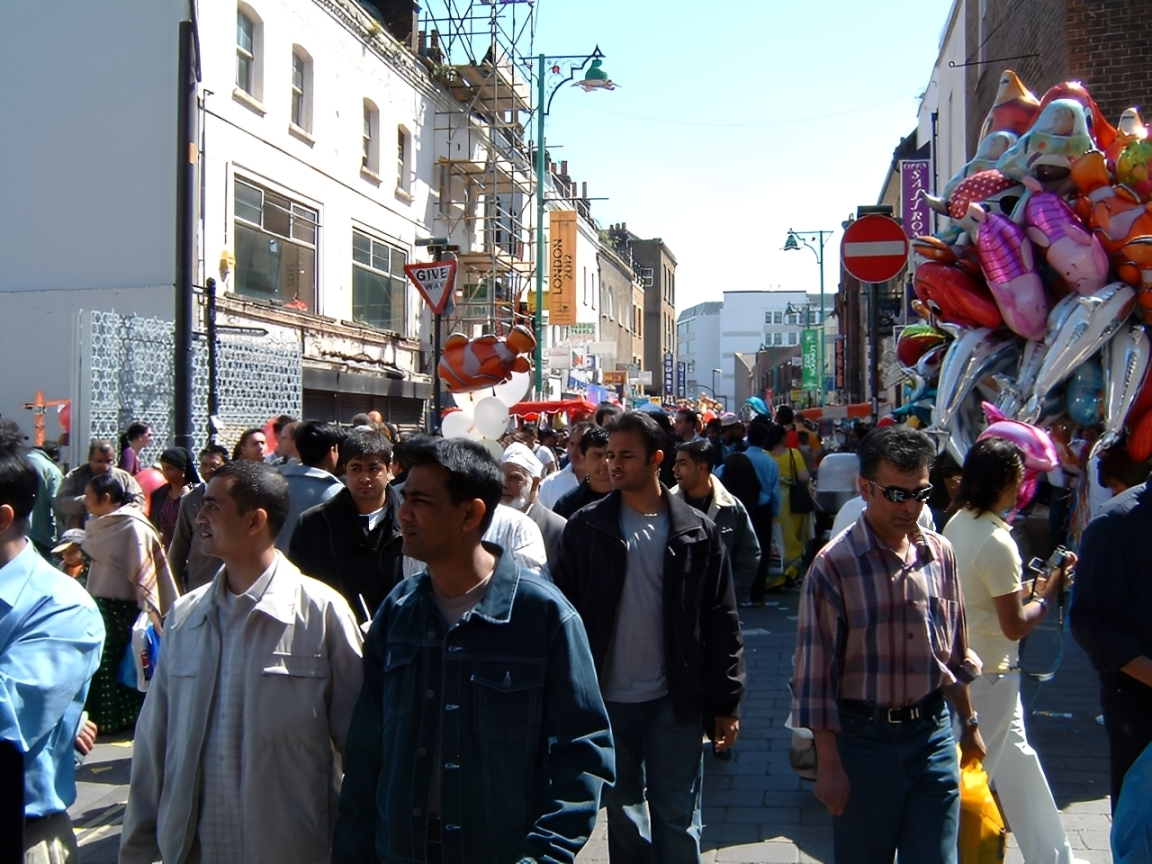
Nadine Osman
Muslim immigrants face significantly more negative views than other religious groups in Britain, with public opinion sharply divided along lines of age, political affiliation, and geography.
A recent YouGov survey, published on July 21 and conducted earlier this month with a nationally representative sample of 2,130 adults, also highlights widespread misconceptions about Islam and its teachings. The findings reveal a clear hierarchy of acceptance among immigrant groups. Christian immigrants are regarded most positively, with 41% of respondents saying they contribute positively to Britain and just 7% viewing their impact negatively. Sikh and Hindu immigrants also enjoy largely favourable perceptions. In stark contrast, Muslim immigrants receive the highest levels of negativity, with 41% of participants saying their presence has a negative impact, while only 24% see it positively.
These attitudes are closely linked to political affiliation. Among Reform UK voters, 87% express negative views of Muslim immigrants, and more than half (53%) believe Islam encourages violence against non-Muslims. Conservative voters share similar scepticism: 52% view Muslim immigration negatively, and 69% consider Islam incompatible with British values.
Labour and Liberal Democrat supporters, by contrast, display significantly more openness. Among Labour voters, 35% view Muslim immigrants positively compared with 29% negatively, while a further 25% take a neutral position. Liberal Democrat voters are the most favourable: 36% see Muslim immigrants positively, just 19% negatively, and one-third (34%) consider their presence neither positive nor negative. These divisions suggest that political rhetoric and party messaging may reinforce or challenge public perceptions of Muslim communities.
The survey findings resonate with recent remarks by Reform UK’s Deputy Leader Richard Tice, whose statements about Muslim communities have sparked widespread attention. Tice has called Islamophobia a “made-up word” and questioned whether Islamic practices, such as wearing the burqa, align with British values. Defending debates over a potential burqa ban, he stated,
“I think it is right that we should have a debate about whether or not the burqa is appropriate for a nation that’s founded in Christianity, where women are equal citizens and should not be viewed as second-class citizens.”
He has also commented on Sharia law, telling critics, “Go enjoy Sharia law elsewhere in the world.”
These remarks contribute to a broader climate in which Muslim communities are portrayed as culturally or socially incompatible with mainstream British life.
Tice’s comments intensified controversy when he claimed migrants were “leering” and “jeering” outside primary schools. Policing Minister Dame Diana Johnson condemned these claims, accusing Tice of “trying to whip up an issue.” She told Times Radio, “I haven’t personally seen evidence of people hanging around outside primary schools other than obviously parents and carers. And I often go and talk to people in my constituency outside school gates. I haven’t seen that myself.”
Johnson suggested that Tice may have been referring to “vigilante groups,” as he encouraged privately organised patrols to keep women safe. Such statements have drawn criticism from politicians and anti-racism groups alike. Experts argue that the rhetoric, combined with the survey’s finding that 87% of Reform UK voters hold negative views of Muslim immigrants, reinforces misconceptions about Islam and fuels divisive attitudes in British society.
Across all respondents, 53% say Islam conflicts with British values, whereas just 25% believe the religion aligns with them. Younger adults (46%), London residents (31%), and Labour voters from the 2024 general election (35%) are most likely to find Islam compatible with British values. Misconceptions about violence are widespread: 31% wrongly believe Islam encourages violence against non-Muslims, while only 27% correctly state that Islam discourages violence. This misunderstanding is particularly pronounced among Reform UK supporters, 70% of whom associate Islam with violence.
The survey also highlights attitudes toward Muslim women and the hijab. Nearly half (49%) believe women wear the hijab due to family or community pressure, especially among Leave voters (58%) and those over 65 (51%). Only 27% recognise hijab-wearing as primarily a personal choice.
Age, region, and socio-economic factors further shape attitudes. Young adults aged 18 to 24 are nearly three times as likely as those over 65 to hold positive views of Muslim immigrants (37% compared to 13%). Londoners are more favourable (31%) than residents of the Midlands and the North (21%), with Scotland slightly more accepting than England and Wales. Higher socio-economic groups are also more inclined to see Islam as compatible with British values than lower socio-economic groups.
Photo: Brick Lane, East London
Credit: Wikimedia Commons
ISLAMOPHOBIA
UK Trade Envoy forced out in seemingly Islamophobic campaign
Muslim Charities Forum condemns “divisive” culture wars targeting British Muslims
One in five Britons say Muslims face the most demonisation
X’s algorithm under fire for spreading anti-Muslim misinformation post Southport attack
Germany: Turkish and Arabic names face persistent job search bias
Madrid overturns controversial Jumilla ban targeting Muslim religious gatherings
Far-right Dutch politician faces criminal complaint over anti-Muslim election image
New Jersey student sues teacher over alleged bullying targeting Egyptian heritage and Muslim faith
Anti-Muslim hate rising in Australia, most incidents go unreported, report finds